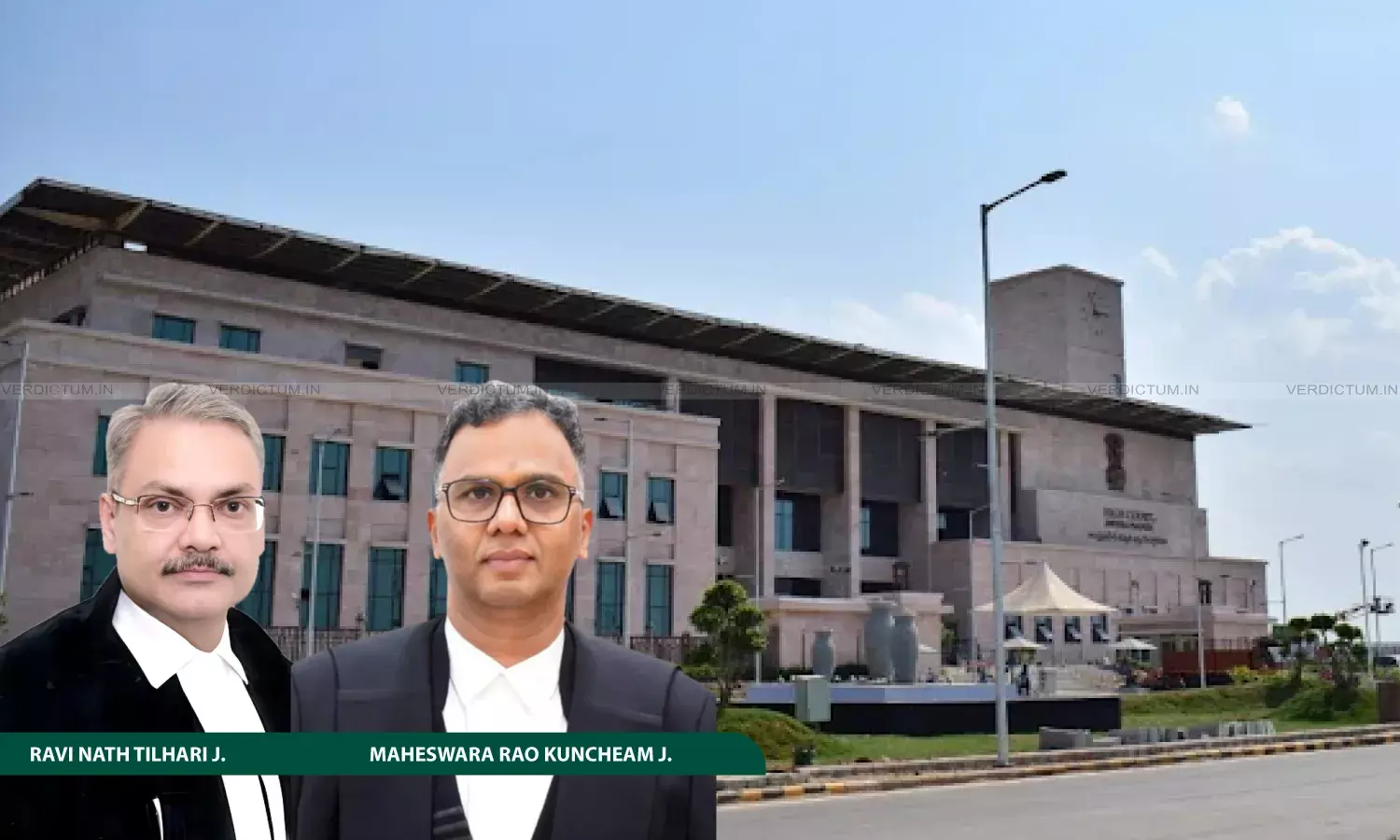Judgments Of Constitutional Courts Have Retrospective Effect Unless Specified Otherwise: Andhra Pradesh High Court
The High Court has held that while legislation enacted by a legislature ordinarily operates prospectively unless expressly stated otherwise, judicial pronouncements of constitutional courts are deemed to operate retrospectively unless the court itself limits their applicability.

Justice Ravi Nath Tilhari, Justice Maheswara Rao Kuncheam, Andhra Pradesh High Court
The Andhra Pradesh High Court has observed that judicial decisions interpreting the law are generally retrospective in nature and apply to past transactions unless the court explicitly restricts their effect to the future.
The High Court was hearing a first appeal arising out of execution proceedings concerning competing claims over immovable property, where one of the parties argued that the Supreme Court’s ruling in Suraj Lamp and Industries Pvt. Ltd. v. State of Haryana (2012) should be treated as prospective in operation.
A Division Bench comprising Justice Ravi Nath Tilhari and Justice Maheswara Rao Kuncheam rejected that contention, observing that “whereas a law made by the legislature is always prospective in nature unless it has been specifically stated in the statute itself about its retrospective operation, the reverse is true for the law which is laid down by a Constitutional Court, or law as it is interpretated by the Court. The judgment of the Court will always be retrospective in nature unless the judgment itself specifically states that the judgment will operate prospectively.”
The appellants were represented by Advocate P. Rajasekhar, while Advocate K.V. Vijay Kumar appeared for the respondents.
Background
The case arose from a decree for specific performance of an agreement of sale. The decree-holder sought delivery of possession of the property under execution proceedings.
During execution, the appellants filed a claim petition under Order XXI Rule 97 of the Code of Civil Procedure (CPC), asserting ownership based on a General Power of Attorney-cum-Agreement of Sale executed in their favour by the judgment debtor. They contended that possession was delivered under that document, which preceded the decree-holder’s attempt to enforce his rights.
The executing court rejected the claim, holding that such an instrument did not confer ownership and that the agreement relied upon by the decree-holder was prior in time and had culminated in a decree of specific performance.
Aggrieved, the appellants filed a first appeal under Section 96 CPC, arguing that the Suraj Lamp judgment, which held that GPA transactions do not transfer ownership, should not apply retrospectively to transactions executed before the Judgement was pronounced.
Court’s Observation
The Andhra Pradesh High Court, upon hearing the matter, examined the issue of whether the Supreme Court’s decision in Suraj Lamp applied retrospectively. The appellants had contended that their transaction, executed before that ruling, remained valid and unaffected.
Rejecting this argument, the Court relied upon the Supreme Court’s decision in Kanishk Sinha v. State of West Bengal (2025), in which the Apex Court had held that judicial pronouncements are presumed to be retrospective unless specifically limited in effect.
Relying upon the precedent, the Andhra Pradesh High Court further clarified that “the prospective operation of a judgment is normally done to avoid any unnecessary burden to persons or to avoid undue hardships to those who had bona fidely done something with the understanding of the law as it is existed at the relevant point of time.”
The Bench explained that the prospective operation of a judgment “is done not to unsettle something which has long been settled, as that would cause injustice to many,”.
In the matter at hand, the Bench further clarified that the Suraj Lamp decision merely reiterated an already well-established legal position that “SA/GPA/Will transactions are not sales or transfers and cannot be treated as conveyances.”
The Supreme Court had not introduced new law but reaffirmed existing principles under Sections 54 and 55 of the Transfer of Property Act, 1882, which require a registered sale deed for the valid transfer of ownership, the Court concluded.
Consequently, the contention that the judgment applied only prospectively was held to be untenable.
Conclusion
The Andhra Pradesh High Court dismissed the appeal, upholding the executing court’s order that the appellants’ General Power of Attorney-cum-Agreement of Sale did not convey ownership or title. It affirmed that only the decree-holder, whose prior agreement of sale had been specifically enforced by a court decree and sale deed, was entitled to possession.
Accordingly, the appeal was dismissed without an order as to costs.
Cause Title: Konkanala Suryaprakasha Rao (Deceased) & Others v. Kampa Bhaskara Rao & Another
Appearances
Appellants: P. Rajasekhar, Advocate, assisted by Nimmagadda Revathi, Advocate
Respondents: K.V. Vijay Kumar, Advocate


